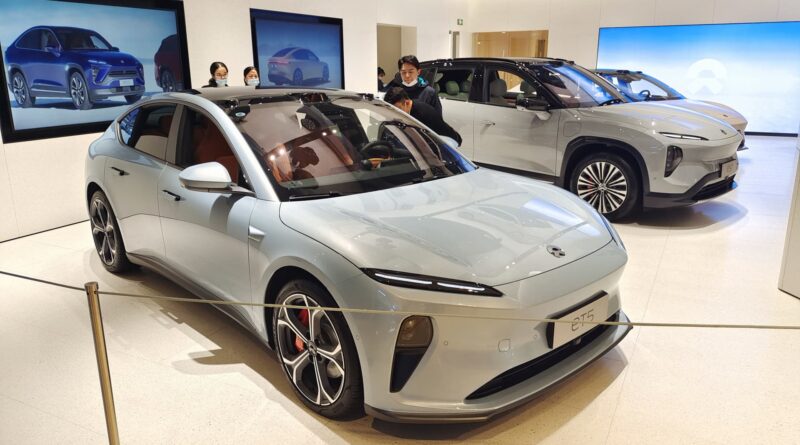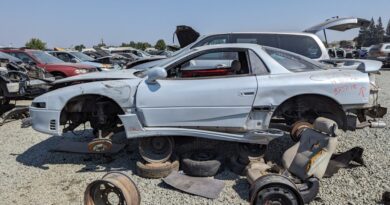Nio says it won’t join the ‘price war’ and slash prices like Tesla
New-energy electric vehicles are seen at a Nio store in Shanghai, China, March 19, 2023.
Future Publishing | Future Publishing | Getty Images
SHANGHAI — Chinese electric car company Nio will keep its prices high rather than cut them, CEO William Li told CNBC in an interview.
“For us, we will certainly not join the price war,” Li said, claiming Nio’s products and services are worth the price. That’s according to a CNBC translation of his Mandarin-language remarks.
Tesla, Elon Musk’s car company, this year slashed prices in the U.S. and China. Nio also sells cars in the premium segment of the market, but its SUVs and sedans can be far more expensive than Tesla’s models.
Li said his company will focus on improving its customer services — such as adding battery swapping and charging stations. The swapping technology claims to change out batteries in minutes so that drivers don’t have to wait for charging.
There are many new products coming to market, which of course means fiercer competition for us. But for users, they have a more abundant selection.
Nio announced last week that starting June 1, people who put down deposits for some of its car models will only get to use the company’s battery swapping service for free four times a month. That’s down from as many as six free swaps a month previously.
The company also said last week it would start charging drivers 380 yuan ($56) a month to use its assisted driving system, called Navigate on Pilot (NOP) plus. The software has been free to test.
Offering technology to assist drivers with parking, highway lane changes and other tasks has increasingly become a selling point for electric car companies in China.
Such assisted driving technology right now may only rank 9th or 10th among users’ needs, according to Li, who is also Nio’s founder and chairman. He said people’s assessment of the tech will change once they try it, and that he expects assisted driving to become a standard car feature.
Nio’s vehicle sales grew by 37% last year to 45.51 billion yuan ($6.61 billion), with the company overall still operating at a loss.
Its revenue comes primarily from China, where government policies have helped accelerate growth in electric car sales. New energy vehicles — which includes hybrid and pure electric — saw penetration of passenger car sales reach 34% in March, according to the China Passenger Car Association.
That’s faster than Nio anticipated, Li said.
“There are many new products coming to market, which of course means fiercer competition for us,” he said. “But for users, they have a more abundant selection.”
Competitive landscape
In the first quarter, 1.3 million new energy passenger cars were sold in China, up 22% from a year ago.
Within that market, Nio said it delivered 31,041 vehicles in the first quarter, up by 20.5% year-on-year. Another U.S.-listed Chinese electric car brand, Li Auto, saw first quarter deliveries jump by more than 60% to more than 52,000 vehicles.
BYD remains by far the dominant market player in China. It sold 264,647 purely battery-powered passenger cars in the first three months of the year, up more than 80% from a year ago. Hybrid passenger vehicle sales doubled from a year ago to 283,270 in the first quarter.
Tesla delivered more than 422,000 cars worldwide in the first quarter, up 36% from a year ago. The company did not break out figures for China, which typically accounts for well over 20% of Tesla’s revenue.
Geopolitics and global expansion
In the last two years, Nio began deliveries to European countries such as Norway and Germany. Tensions between China and the U.S. have escalated, while relations between Europe and Beijing have not been smooth either.
Sustainable global development requires good products for users around the world, something that cannot be done by relying on a single country, Li said.
“Despite the big challenges we face from geopolitics, we still want to stick to serving our customers, pay attention to the pace of investment and manage operational risks well,” he said.
When asked about U.S. market, Li said the company was proceeding with its plans. “But we know challenges will certainly be greater and greater,” he said, without elaborating.
Source : Autonews.com




